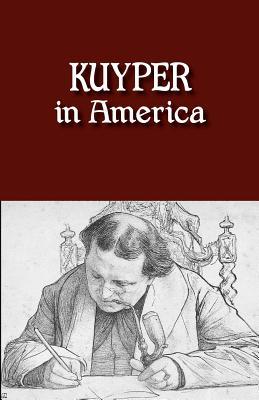Kuyper In America
by Abraham Kuyper
In 1898, Abraham Kuyper (1837-1920) travelled from the Netherlands to the United States to deliver the Stone Lectures at Princeton Theological Seminary. He was gone for more than four months; during which time he wrote twenty-two letters to his wife Jo (and seven children) back home. These sometimes hastily penned personal letters allowed his wife and children to share his adventures, and also his thoughts and feelings while traveling. These are typical travel letters. For Kuyper scholars and students of American history and culture these letters contain fascinating details, and for the lover of the epistolary genre and the petit histoire this publication offers the opportunity to get close to the enigmatic figure of Abraham Kuyper.
BUY NOW
Paperback, 84 pages
Published April 2012 by Dordt College Press
© 2025 Bibleportal.com 版权所有.

Abraham Kuijper, generally known as Abraham Kuyper, was a Dutch politician, journalist, statesman and theologian. He founded the Anti-Revolutionary Party and was prime minister of the Netherlands between 1901 and 1905.
In May 1862 he was declared eligible for the ministry and 1863 he accepted a call to become minister for the Dutch Reformed Church for the town of Beesd. Around 1866 he began to sympathize with the orthodox tendency within the Dutch Reformed Church. He was inspired by the simple reformed faith of Pietje Balthus, a farmer's wife. He began to oppose the centralization in the church, the role of the King and began to plead for the separation of church and state.
In North America, Kuyper's political and theological views have had a significant impact, especially in the Reformed community. He is considered the father of Dutch Neo-Calvinism and had considerable influence on the thought of philosopher Herman Dooyeweer
... Show more